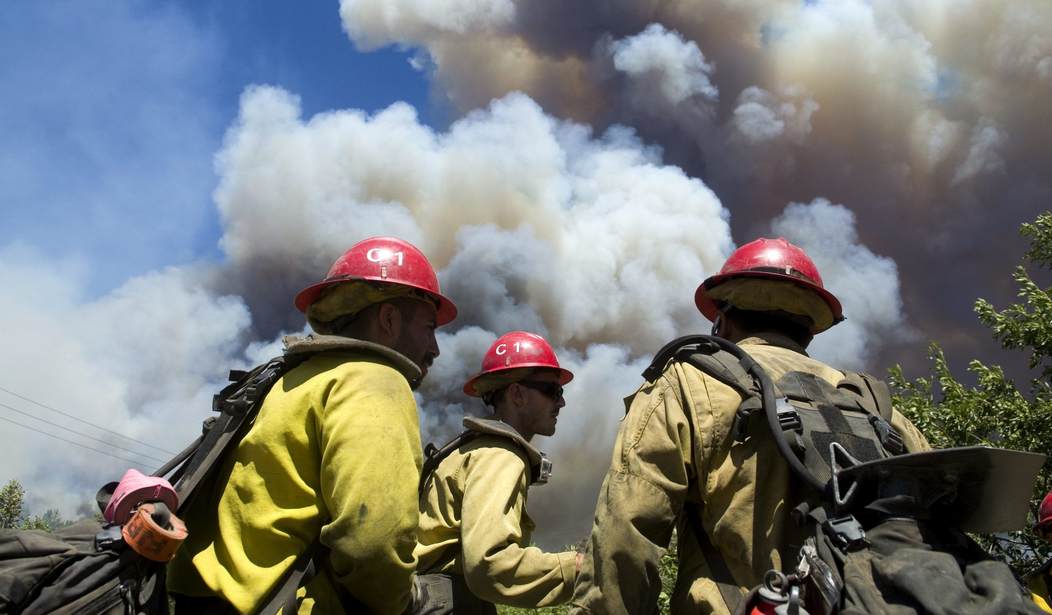WASHINGTON – A fire prevention technician for the U.S. Forest Service in California told a House panel that she was the target of repeated sexual harassment by a superior but the Department of Agriculture failed to take the proper steps to halt the abuse.
Appearing this week before the House Oversight and Government Reform Committee, which has launched an investigation into harassment claims within the USDA, Denice Rice, of El Dorado, Calif., a 15-year Forest Service veteran with experience in structure and wildland fire suppression, testified that she filed a harassment/assault complaint against her supervisor, Mike Beckett, in 2011.
According to Rice, the supervisor stalked her, continually asked for sex, and would trap her in her office and up against her car. Beckett, she said, sent her sexually graphic texts though his government phone. He followed her into the women’s bathroom asking for sex. He lifted up her shirt and further assaulted her by using a letter opener to poke her breasts.
An investigation resulted and Beckett was allowed to resign rather than face termination, with no mark on his record. Rice said she still faces retaliation because the supervisor was friends with the district ranger and forest fire management officer who supported him throughout the probe.
“He walked away clean from the Forest Service and got away with what he did to me,” Rice said.
The treatment of women is a problem throughout the service, Rice said. The supervisor was “a bully, abusive, and a womanizer to female employees for years and nobody did anything about it.”
“Many female firefighters are treated differently than the male firefighters for assignments, training, promotions, and working conditions,” she told committee members. “Women who report sexual harassment are retaliated against. It is your word against his and you know the moment you open your mouth to speak up you are committing career suicide. ‘Zero tolerance’ is lip service when we know that the system is rigged against women for reporting sexual harassment or assault.”
As soon as she filed the complaint again Beckett, Rice said, “everything changed.”
“Management removed all of my supervisory responsibilities, moved me from my location, and isolated me,” she said.
Ultimately, as a result of the investigation, Rice said she was diagnosed with post-traumatic stress. At one point, the district ranger called an all-hands meeting to discuss the investigation. Rice said she sought permission to skip it but she was ordered to attend.
“I was directed to go and when the district ranger started discussing what happened to me, people turned and stared at me,” she said. “I was on display. These peers were people I had known for years. I felt degraded and was humiliated. My perception was that I was being blamed for the disruption in the fire organization. I quickly left the meeting. I was shaking and in tears. There was talk of putting me on AWOL for leaving the meeting.”
By this time, she said the situation “was more traumatic to me than the assaults.”
Lenise Lago, the deputy chief of business operations for the U.S. Forest Service, also appeared before the committee and sought to assure lawmakers that the service has “worked diligently over the last five years to make meaningful progress toward a workplace where all employees are valued, safe and respected.”
“We do not tolerate harassment in the workplace, including sexual harassment, and we take all complaints seriously,” she testified. “When we learn of harassment allegations we take appropriate measures including instituting interim measures to ensure employee safety, conducting an inquiry or investigation and taking corrective action, when appropriate.”
Lago said that as part of a continuing effort to improve the work environment, the Forest Service approved an amended anti-harassment policy last September “to strengthen efforts to eliminate harassment in the workplace.”
“All agency employees have clear direction on anti-harassment policy and they are now empowered with additional resources to create and maintain a positive, safe work environment,” she said.
Panel members were unimpressed with Lago’s claims, blaming her office for negotiating the deal that permitted Rice’s supervisor to resign and thus retain full benefits.
“The guy should not only have been fired, he should have been arrested!” Rep. Gary Palmer (R-Ala.) told Lago in a raised voice.
Rep. Jason Chaffetz (R-Utah), the committee chairman, promised Rice that his panel will “go to the ends of the earth” to assure her protection within the service and maintained that her treatment was “offensive.” He further scolded Lago that the culture within the department needs to be changed.
“I don’t even want to have to call you up here again,” Chaffetz said. “We hear a lot of people say, ‘My statistics are good.’ The evidence is to the contrary.”
In a rare display of bipartisan agreement, Rep. Elijah Cummings (D-Md.), the panel’s ranking member, also asserted that changes are in order and that listening to Rice’s testimony was “very painful.”
“That’s not right,” he said. “We’ve got to deal with this.”
The testimony about sexual harassment and assault within the Forest Service came a little more than two months after the same committee heard similar complaints about the National Park Service. Whistleblowers then told members about incidents of harassment and bullying occurring at a number of national parks like the Grand Canyon, Yellowstone and Yosemite where a reported 18 employees filed harassment complaints.
After that hearing, Chaffetz said, the committee was flooded with “stories of harassment, discrimination and retaliation” at various agencies, including the Forest Service, leading to the hearing.









Join the conversation as a VIP Member